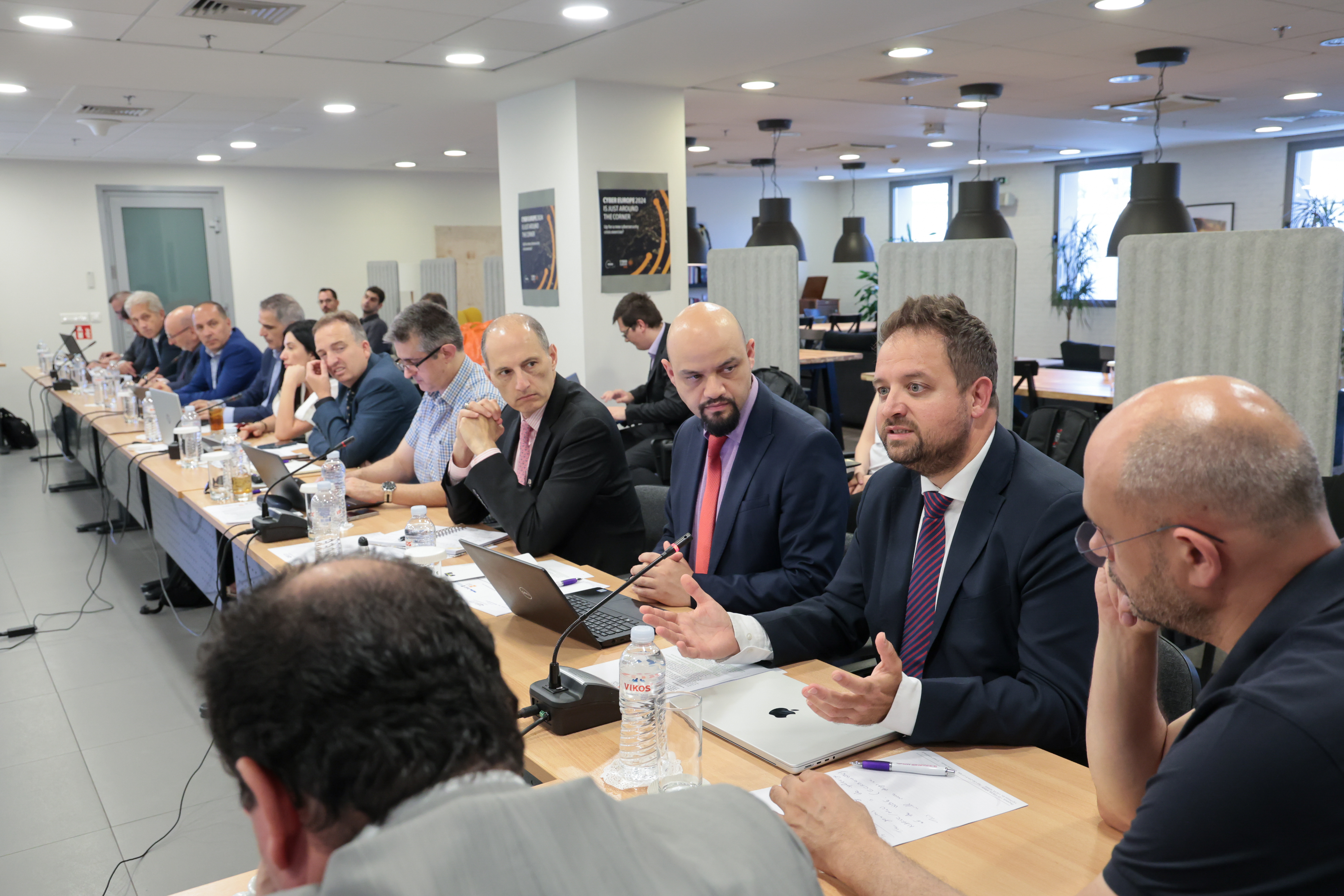USEA Supports Electricity Market Integration Project in Southeast Europe
Update: In recognition of its role in the effort to integrate Southeast Europe electricity networks and markets with Europe, Hellenic Energy Exchange (HEnEx) has been selected to receive the USEA International Partner of the Year Award for 2025. HEnEx has helped Greece establish itself as an energy leader in the region. A representative from HEnEx’s leadership will accept the award at a ceremony in Washington, DC, on May 15.
Originally posted on July 19, 2024.
Marketing coupling will unlock clean energy investment, reduce the cost of cross-border trade, and optimize the use of network assets
The USEA Just and Secure Energy Transition (JSET) program is accelerating electricity market connectivity between Western Balkan and European Union countries, under a USAID U.S.–Europe Energy Bridge project.
That integration is happening through a process called “market coupling,” which optimizes regional transmission network activity by reducing the complexity and cost of cross-border electricity trade. Ultimately, market coupling attracts investment because it provides price transparency.
Market coupling also advances the clean energy transition. Currently, the Southeast Europe region’s energy markets are small, reliant on aging fossil fuel-based power plants, and reliant on a limited number of energy suppliers. For countries of the Western Balkans, in particular, expanding electricity market integration with neighbors and with the European Union will improve access to shared resources and optimize investments in new generation and grid improvements.
The USEA JSET team and other partners are leading the project, which will couple markets in Greece, Albania, Kosovo, and North Macedonia. To be successful at market coupling, these countries must first align with EU energy policies. JSET is supporting each country’s transmission system operators, market operators, and national regulatory authorities as they restructure their internal operations and protocols in accordance with EU market rules and principles, while simultaneously developing legal agreements with EU counterparts.
Specific milestones and activities underway to achieve market coupling include:
- Identifying necessary transmission system operator upgrades: including restructuring procedures to mirror EU counterparts, increasing regional data exchange, and improving allocation of cross-border transmission capacity
- Modernizing energy sector operations and protocols: including identifying the human resource, business process, and IT system upgrades prerequisite for integration with EU markets
- Scaling-up national regulatory authorities’ roles: including preparing regulators to review and adopt the regulatory decisions and agreements needed for market development and alignment with EU standards, and improving regulators’ ability to identify and curb market manipulation through effective market monitoring
In June 2024, representatives of participating countries met in Athens to confirm significant progress on this project. At this meeting, regulatory authorities worked in parallel with transmission system operators and power exchanges from the participating countries to discuss what is needed to move market coupling work forward. Regulators reviewed proposals for a “capacity calculation region” that would support the market coupling project. Transmission system operators and power exchanges acknowledged the list of near-term requirements for joining the local implementation market coupling project, known as the Italian Borders Working Table, and agreed to a roadmap and scope of work for harmonizing their business processes over the next six months.
This project began in November 2023, with the signing of an agreement between USAID and the Government of Greece. Under the terms of that agreement, USEA JSET staff then facilitated a multi-party memorandum of understanding to outline project terms. The project is expected to be completed within three years.
The USEA JSET program is also supporting other USAID-funded market coupling projects. Recently, program staff traveled to Montenegro to explore how they might assist Montenegro’s regulator to provide oversight of a market coupling project between Montenegro and Italy. The JSET program is also supporting a market coupling project between Moldova and Romania.
Making progress on market coupling in Southeast Europe: In June 2024, Miha Pregl, director of European electricity markets, and other USEA JSET team members met with participating regulatory authorities, transmission system operators, and power exchanges to discuss progress on a USAID-sponsored project to couple electricity markets in Greece, Albania, Kosovo, and North Macedonia. To be successful, energy institutions in each participating country are making changes to their internal operations and protocols in accordance with EU market rules and principles, while simultaneously developing legal agreements with EU counterparts.

